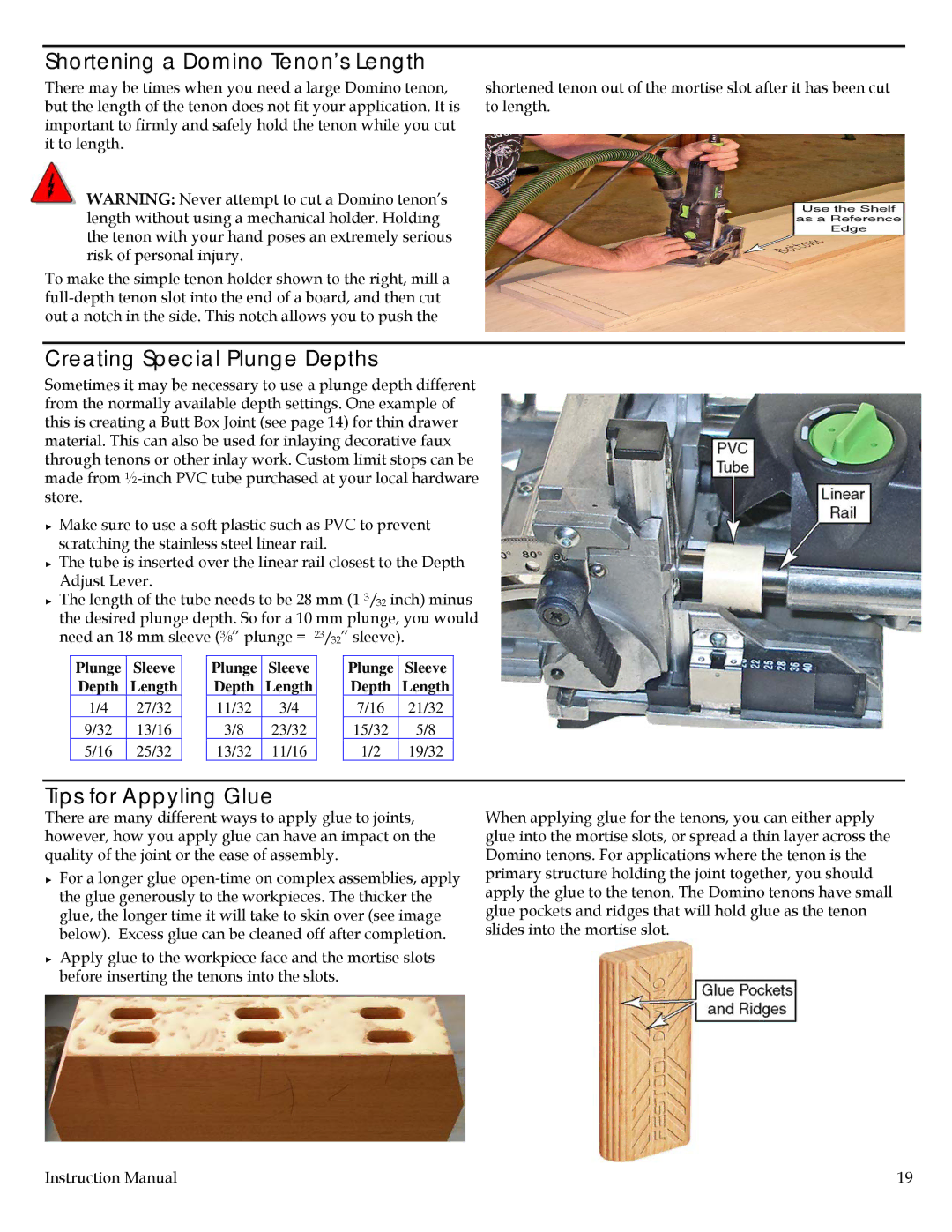
Shortening a Domino Tenon’s Length
There may be times when you need a large Domino tenon, but the length of the tenon does not fit your application. It is important to firmly and safely hold the tenon while you cut it to length.
WARNING: Never attempt to cut a Domino tenon’s length without using a mechanical holder. Holding the tenon with your hand poses an extremely serious risk of personal injury.
To make the simple tenon holder shown to the right, mill a
shortened tenon out of the mortise slot after it has been cut to length.
Creating Special Plunge Depths
Sometimes it may be necessary to use a plunge depth different from the normally available depth settings. One example of this is creating a Butt Box Joint (see page 14) for thin drawer material. This can also be used for inlaying decorative faux through tenons or other inlay work. Custom limit stops can be made from
►Make sure to use a soft plastic such as PVC to prevent scratching the stainless steel linear rail.
►The tube is inserted over the linear rail closest to the Depth Adjust Lever.
►The length of the tube needs to be 28 mm (1 3/32 inch) minus the desired plunge depth. So for a 10 mm plunge, you would need an 18 mm sleeve (⅜” plunge = 23/32” sleeve).
Plunge | Sleeve |
| Plunge | Sleeve |
| Plunge | Sleeve |
Depth | Length |
| Depth | Length |
| Depth | Length |
1/4 | 27/32 |
| 11/32 | 3/4 |
| 7/16 | 21/32 |
9/32 | 13/16 |
| 3/8 | 23/32 |
| 15/32 | 5/8 |
5/16 | 25/32 |
| 13/32 | 11/16 |
| 1/2 | 19/32 |
Tips for Appyling Glue
There are many different ways to apply glue to joints, however, how you apply glue can have an impact on the quality of the joint or the ease of assembly.
►For a longer glue
►Apply glue to the workpiece face and the mortise slots before inserting the tenons into the slots.
When applying glue for the tenons, you can either apply glue into the mortise slots, or spread a thin layer across the Domino tenons. For applications where the tenon is the primary structure holding the joint together, you should apply the glue to the tenon. The Domino tenons have small glue pockets and ridges that will hold glue as the tenon slides into the mortise slot.
Instruction Manual | 19 |
